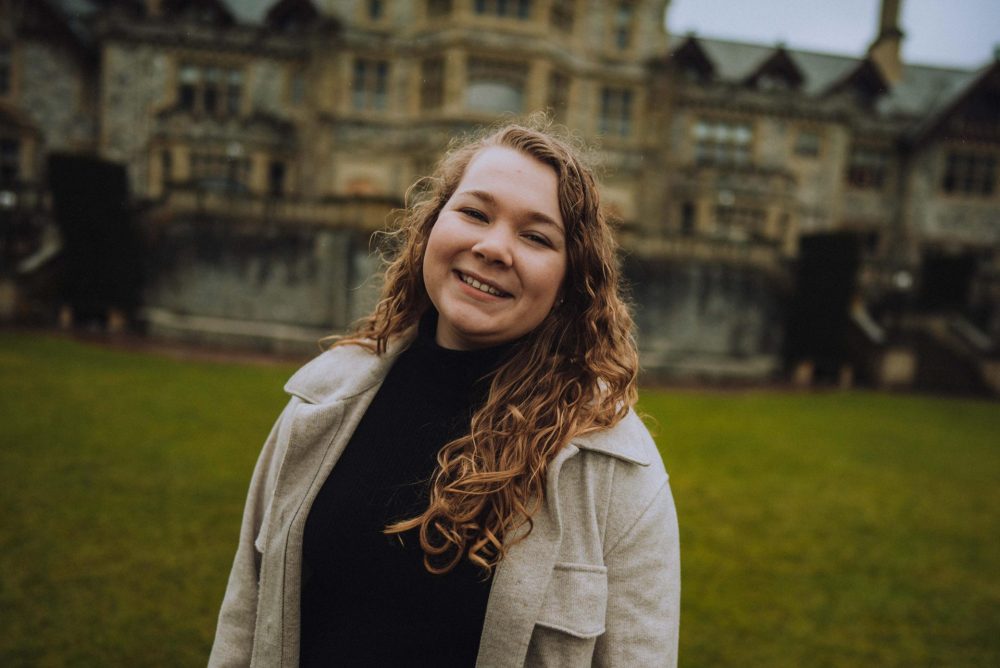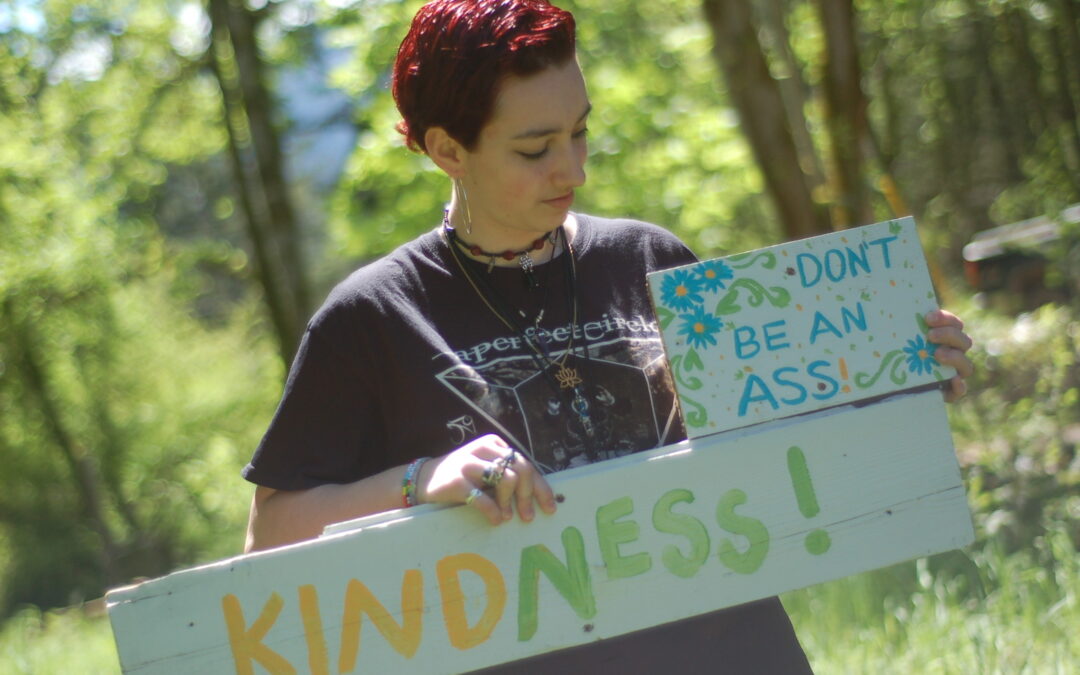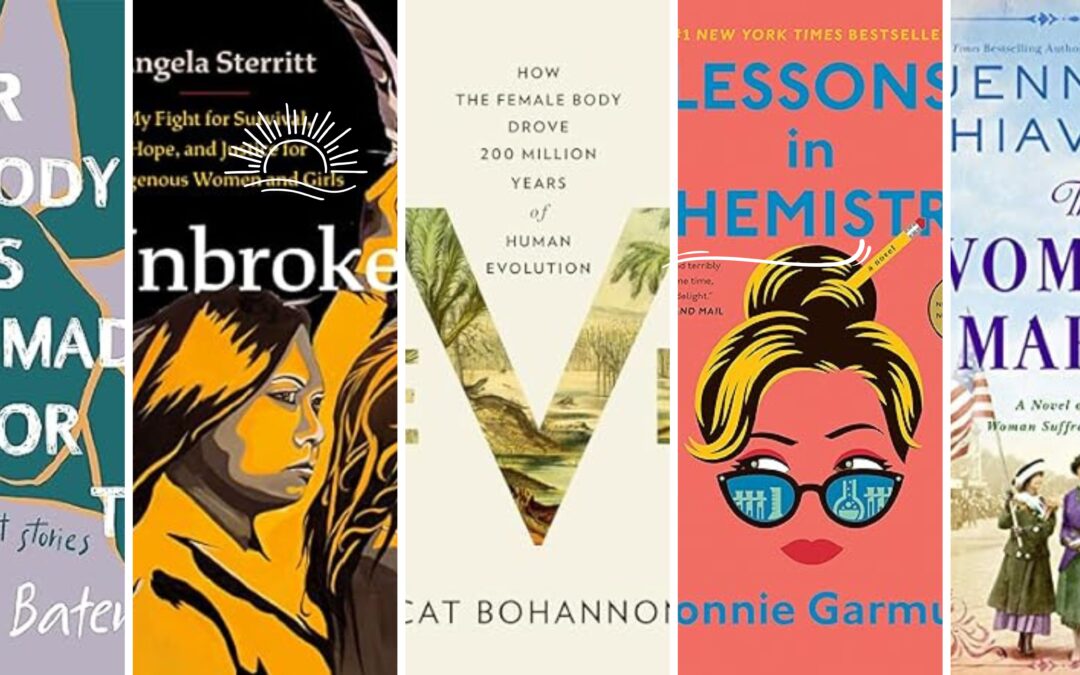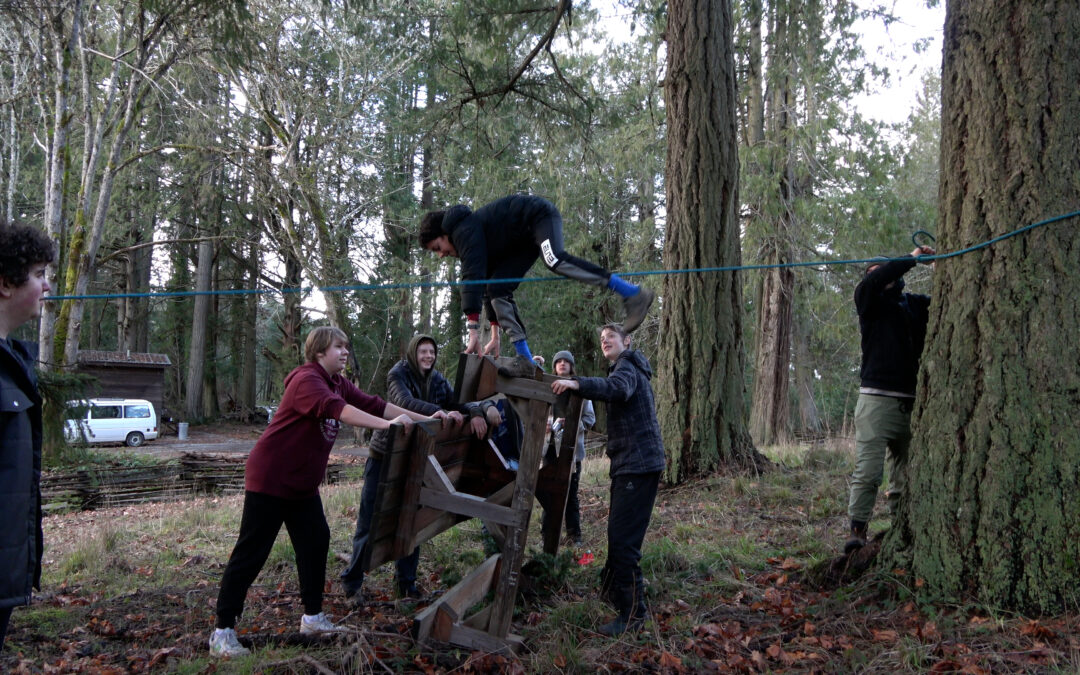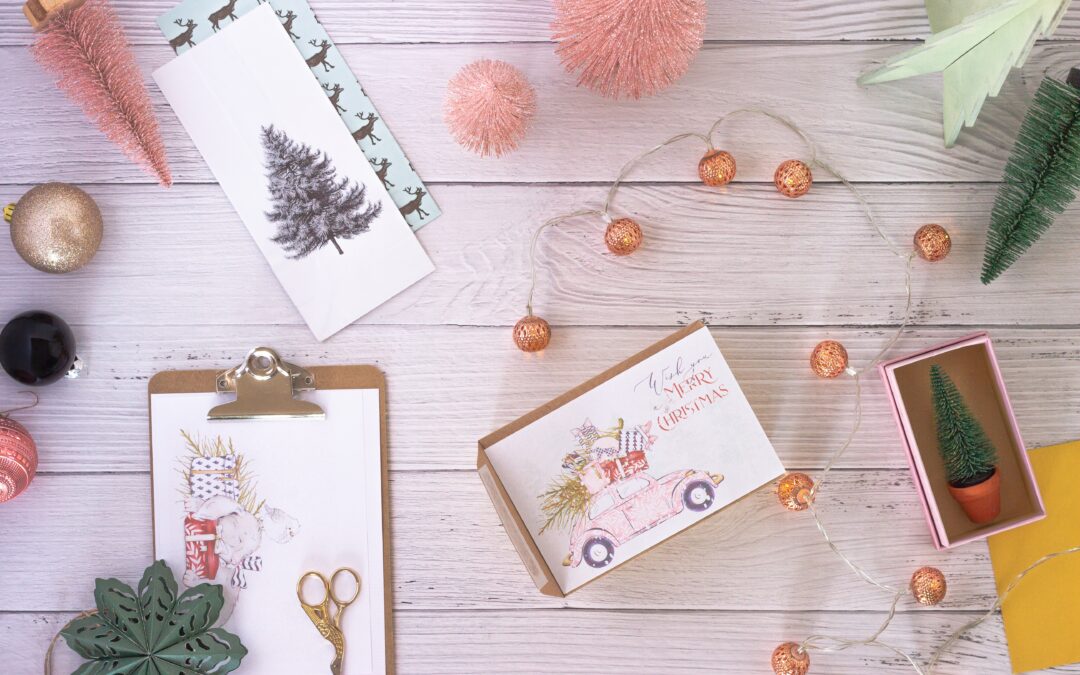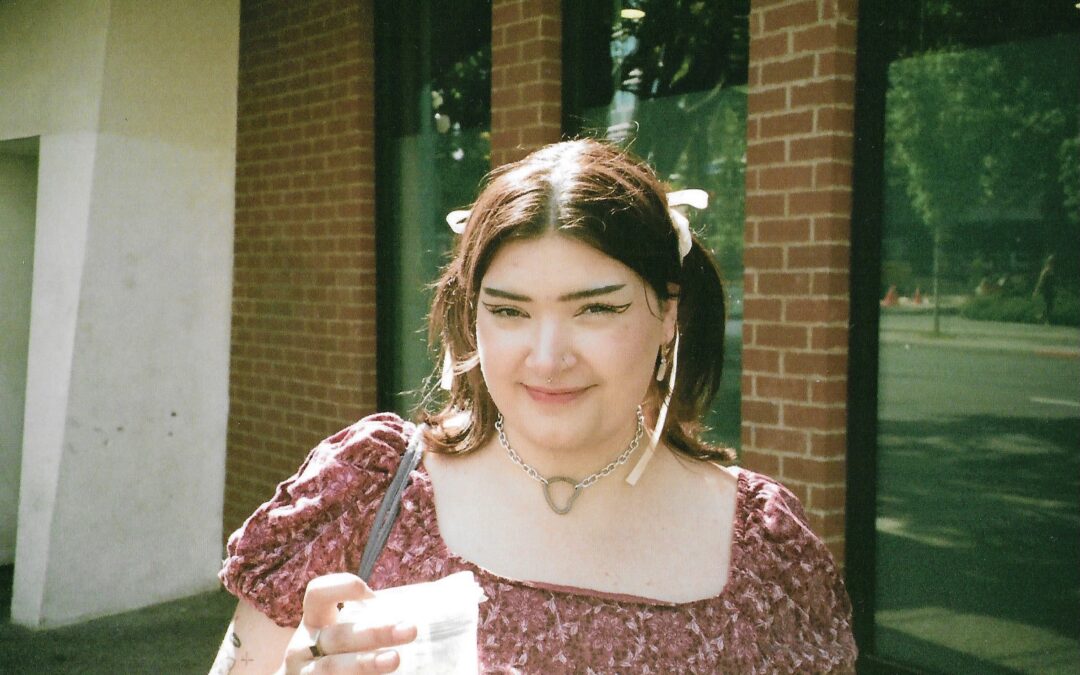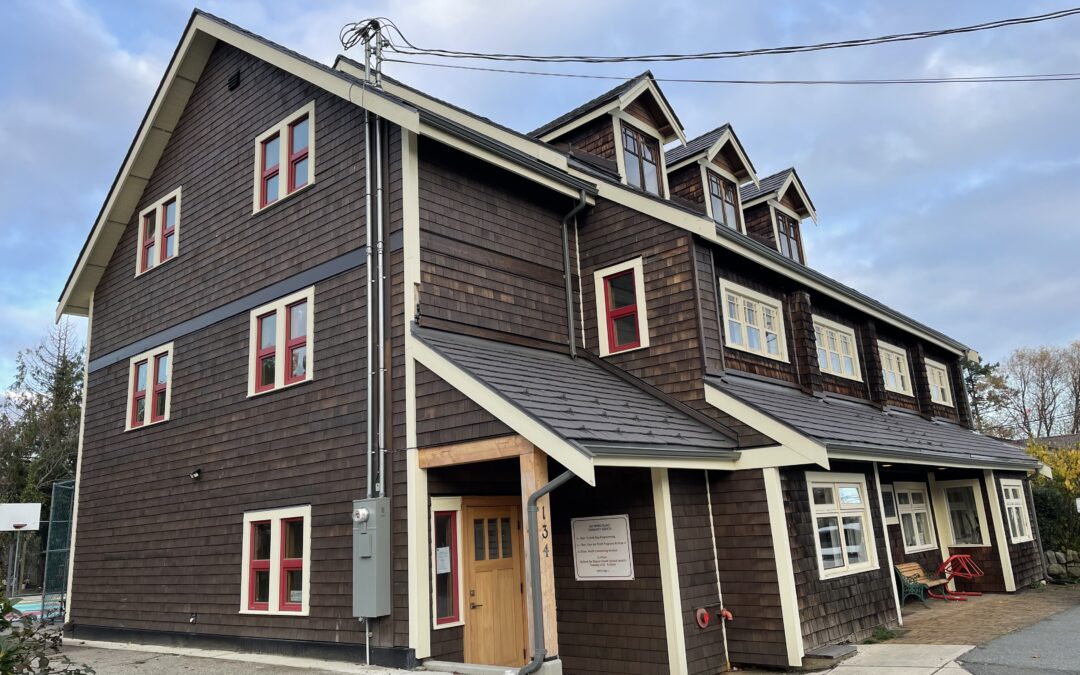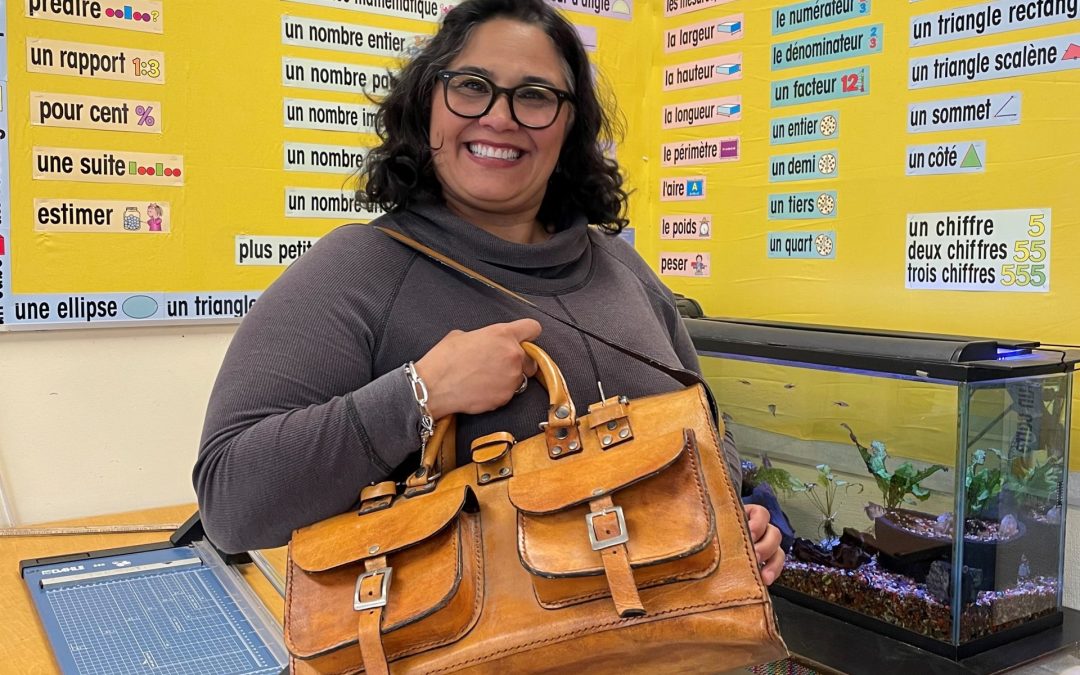In high school, Natasha Wilson, was a participant in the Pass It On program from The Circle Education. Once a week, she gathered in a circle with other high school girls to engage in open and vulnerable dialogue about their life experiences. Before joining the group, she was accustomed to other school spaces where it was uncommon to be honest with others about what she was really going through. But in Pass It On, she felt safe to share the parts of herself that she felt she needed to hide.
After graduating Gulf Island Secondary School in 2018, Natasha was craving the meaningful and authentic connection that Pass It On brought to her life. After switching out of an unfulfilling music program to pursue a diploma in Criminal Justice Studies from Camosun College, she still found that “every conversation she had was surface level.” She wanted to find a space where she could have honest and vulnerable conversations with her peers just like she did in the Pass It On circle.
Eventually, she was able to find that in the Justice Studies program at Royal Roads University. This program dives deep into the realm of criminology and explores alternative perspectives on the criminal justice system including restorative justice practices.
Accountability
Restorative justice is rooted in indigenous values and practices. It was how indigenous communities traditionally responded to crime. “Restorative justice is less about punishment and more about listening, accountability, and healing,” Natasha explains. The process brings together the offender, the victims and community members to engage in a conversation about what happened, how it made each person feel, and how to move forward.
While the Justice Studies program was Natasha’s formal introduction to restorative justice, it wasn’t her first. “Restorative justice is really big on listening, accountability, intention and reducing harm and I feel like all of those values started for me in Pass It On.” Through her education in restorative justice, she now sees how much overlap it has with her experience in Pass It On. For example, Pass It On participants sit in a circle where everyone is equal and able to see one another in their vulnerability. “In restorative justice, circles are really big for the same reason.”
Listening to Learn
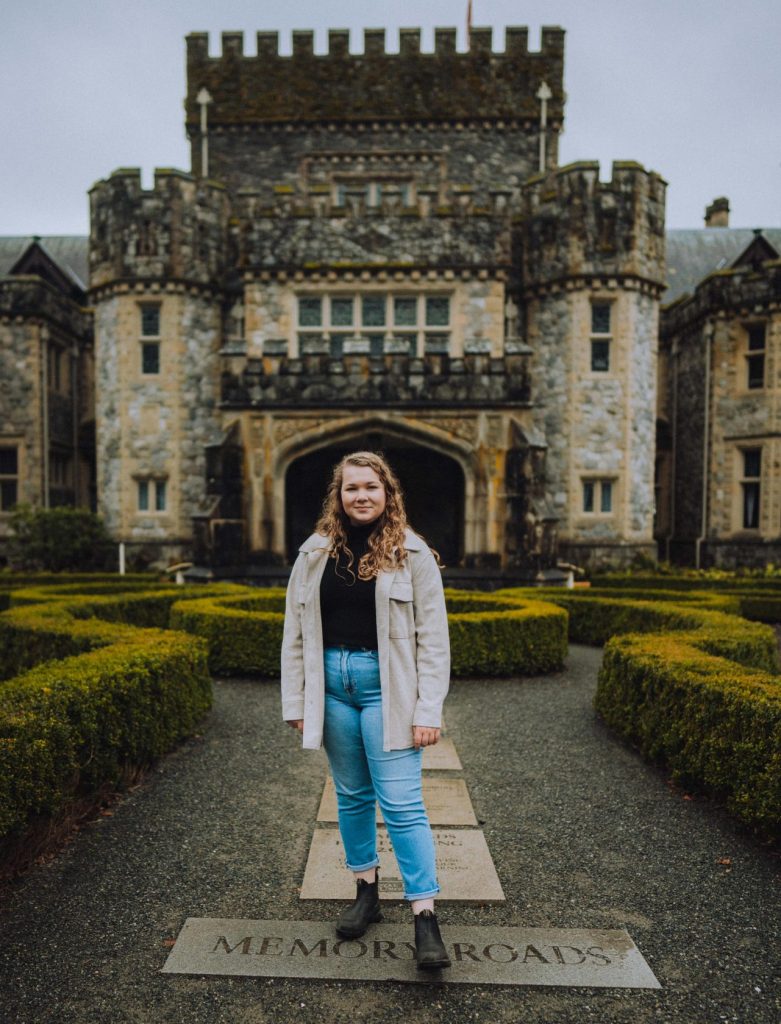
In the circle of Pass It On, Natasha had the opportunity to share and be heard, something she described as active listening. As a central concept of restorative justice, she explains that active listening is “listening to learn, not to respond.” It is human nature for us to want to relate to someone else through our own experiences. But when someone is listening to respond, they end up not really listening at all. Natasha remembers how in the Pass It On circle, the group would pause after someone shared, inviting a moment for each person to process what they had heard. This intentional practice resulted in a deeper understanding of the perspectives that were offered.
“It changed the way that I talk to other people in my life,” Natasha reflects. “It has empowered me to engage in authentic communication in my relationships where I can be honest about what I need in that moment.”
Before Pass It On, Natasha experienced moments where “she let people walk all over her” and she “wished she had the skills to take her own space.” But in the circle, she was encouraged to be brave and share what was on her mind. Those moments, where she felt seen and heard, helped Natasha learn how to set those boundaries within her relationships. Natasha is “really grateful for her ability to have these conversations” because it has “made every part of her life stronger.”
Boundaries
Being able to set boundaries with others is an important social-emotional skill that relates to a key aspect of restorative justice practice, harm reduction. “It is so important for children to be exposed to these skills early on,” says Natasha. “When honest and meaningful conversation is encouraged, you start to feel less self-conscious about asking for what you actually need.” Natasha pauses and smiles, “I think how much I could have changed if I had actually spoken up for what I needed.”
It’s those intrapersonal and interpersonal skills such as self-awareness, emotional regulation and self-confidence that are “arguably more important than science and social studies” she shares. Although she wasn’t introduced to these skills early on, she has learned them now. “At the end of my degree, I will probably tell you that social-emotional learning is what I learned the most,” Natasha reflects. “These social-emotional skills are so important. That’s why they should be taught in school from kindergarten all the way to Grade 12.”
Photo’s: Philipp Klein
Programs at The Circle Education
Check out all of the programs The Circle has to offer. Our programs are built around the core principles of SEL to work towards safer communities.
- We offer the Empathy Project for Grade 3, 4, and 5 students to provide them with the building blocks of social–emotional learning.
- For Grades 6, 7, and 8, the Respect Project offers students the opportunity to get to know one another better and learn about the foundational role respect plays in their lives.
- The Pass It On program is an after-school, cross-peer group mentorship program with intermediate students (as buddies) and high school students (as mentors). Its goal is to foster capacity for healthy relationships and support life transitions.
Our programs have successfully offered students the wide range of benefits of a social–emotional education. After attending our programming, students have expressed a greater capacity to feel empathy for others, to resolve conflict, and to build equal and healthy relationships. Teachers observe students using their new skills in the classroom, and they request our programs year after year.
Learn more about our programs or request more information about how you can bring our programs to your classroom or organization.
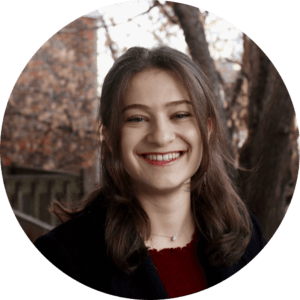
.
Adele Mark is a fourth-year undergraduate student studying Sociology and Global Development Studies at the University of Victoria. She was involved in the Pass It On program in high school at Gulf Islands Secondary School and was hired as Marketing and Communications Assistant, a temporary student position in early 2021, at The Circle. Adele has been involved with several projects that focus on youth education and female empowerment and looks forward to continuing this work with The Circle Education.

